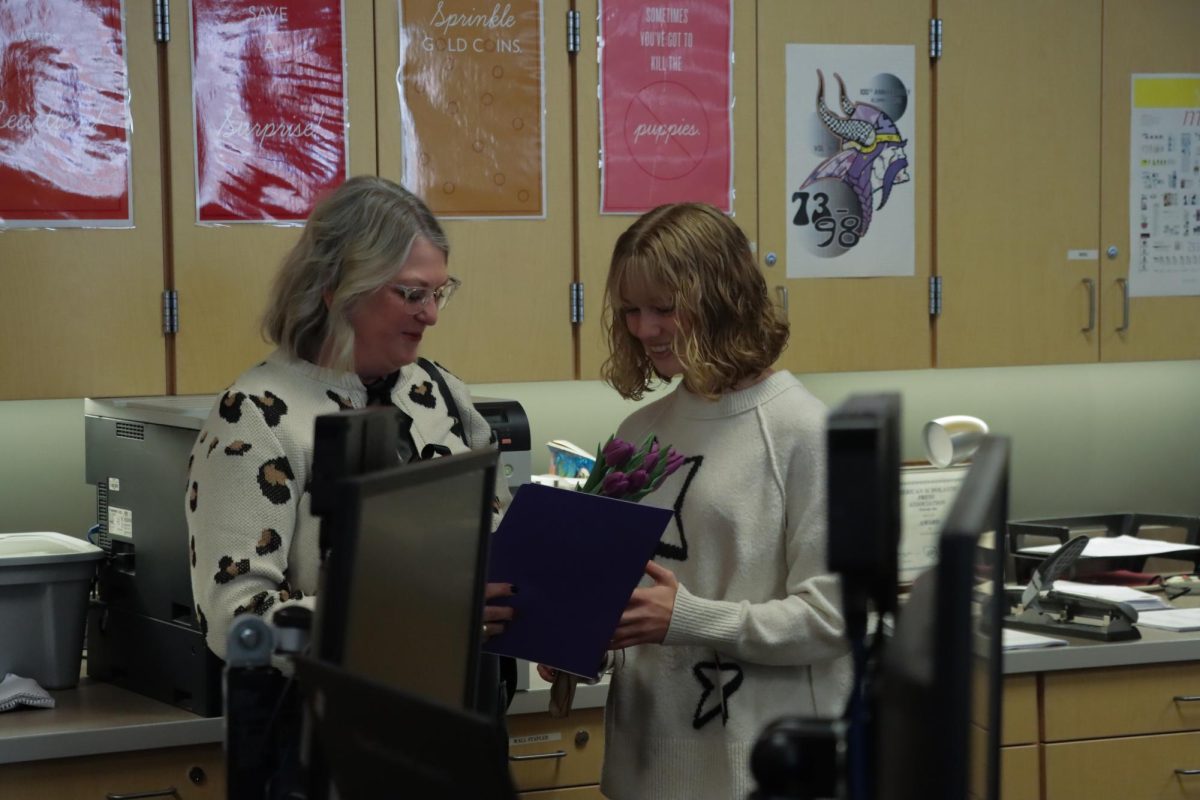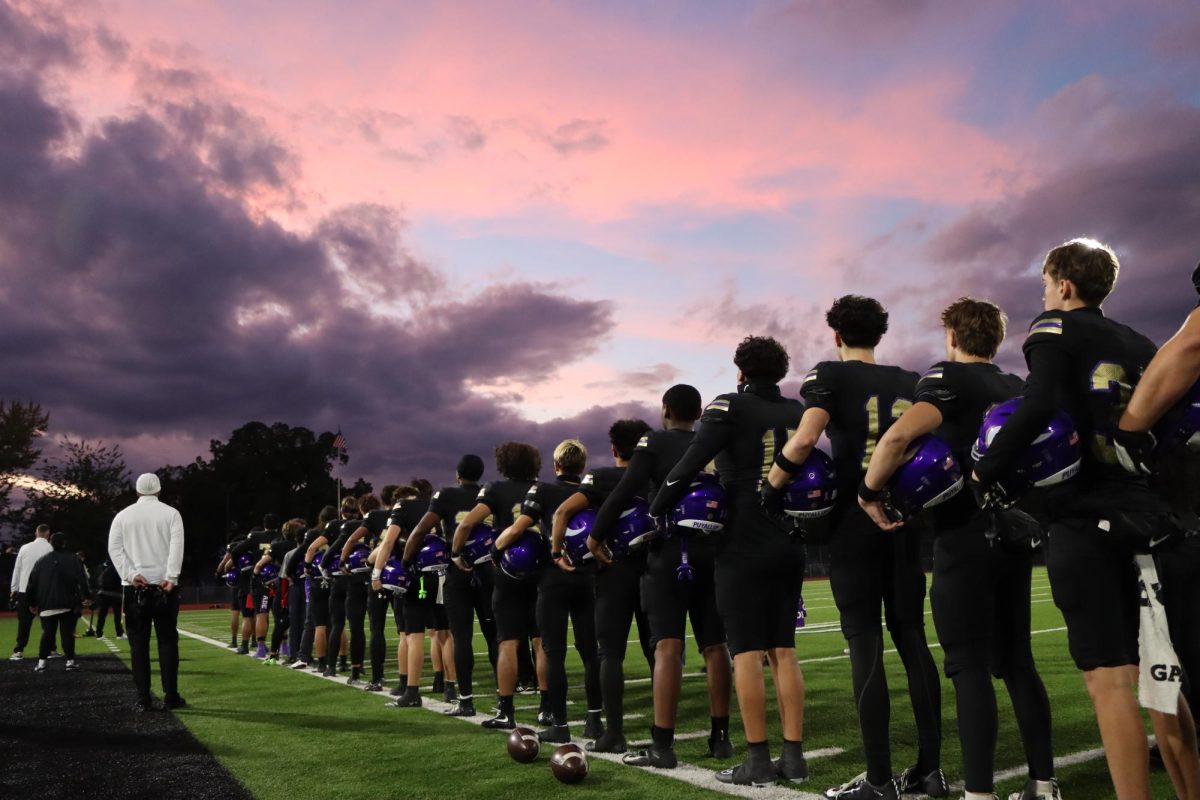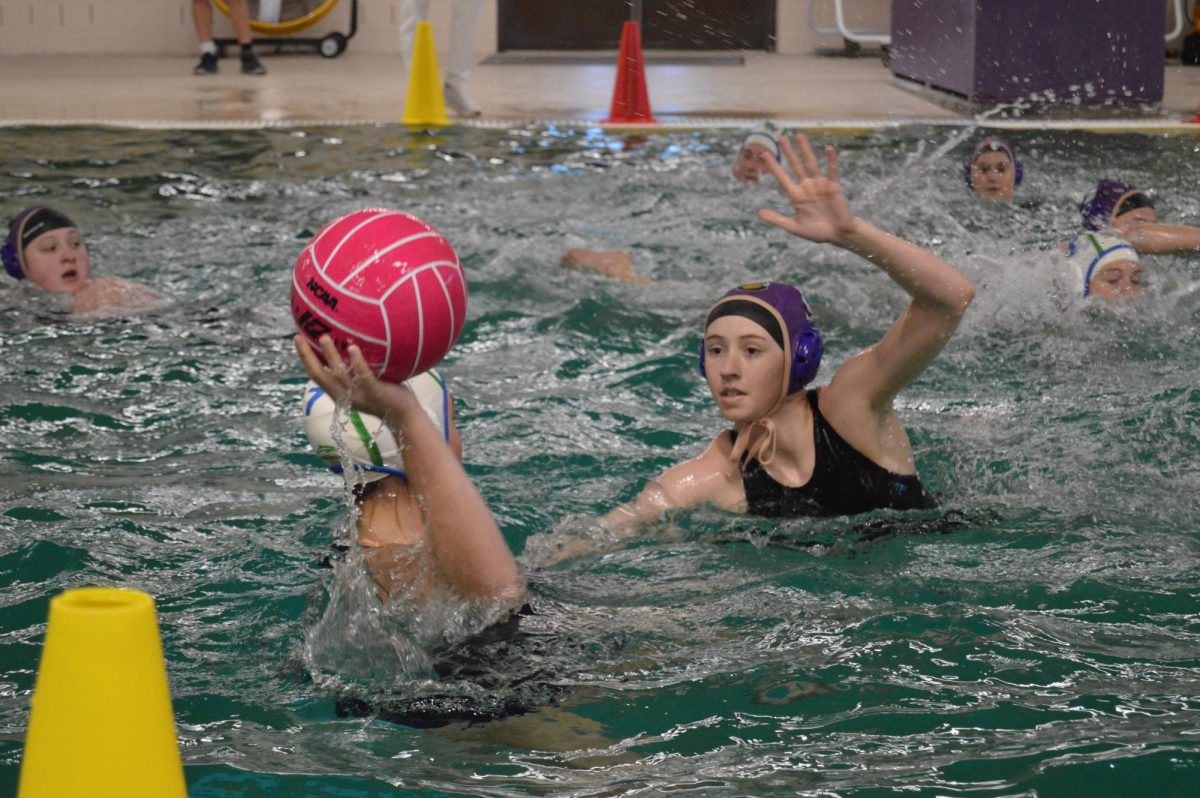Many high school athletes strive to play at the college level, and while some get the chance, for others, their college experience is tremendously different.
But what happens when the students who do get the chance to play at the next level suddenly lose that opportunity?
When injury and health get in the way of athletic dreams, it can be hard for a student athlete to cope with the loss of what they worked so hard to achieve. In the cases of two Puyallup School District employees, they had to come to terms with this change and find a new passion in life: supporting students and coaching.
Math teacher Alec Elliott was a student at PHS himself involved in baseball, basketball, and football. Sports, he says, played a major role in his life.
“I just kind of fell in love with sports,” Elliott said. “It got me away from home life, which wasn’t great. You make a lot of different friends in sports; you have a friend group that you can always rely on. I think it also teaches you responsibility, how to hold a schedule, and holds you accountable to maintaining that schedule.”
School social worker Therssa Warren had a similarly positive experience with sports when she was a student at Lakes High School. Warren was inspired by her family to get into sports, leading her to play basketball and run track.
“My family is just an athletic family. My uncles have played basketball my whole life. Once my older brother started to play, I thought ‘I want to be like my brother, so I’m going to try this,’” Warren said.
Warren says she found success in sports, and it quickly became an important part of her life.
“I didn’t know how good I was going to be at first, but I started to get good. I really started to do basketball when I was nine or ten and track around ten, I went to the Junior Olympics and things like that. Basketball became my main sport and track was my workout sport to get ready for basketball,” Warren said.
Elliott had a full-ride academic scholarship to the University of Washington and was planning to play baseball in college when he broke his foot playing basketball during his senior year of high school. A baseball coach from the University of Washington guaranteed Elliott a walk on spot for the following year’s team, Elliott worked hard to recover throughout his first year of college.
“The coach said that if I came back the next year, my spot was there as long as I had rehabbed, and I was back to where I had left off,” Elliott said. “So, I did that. I was ready, I was prepared. But then that coach got fired, and the new coach didn’t allow walk-ons. To look at all the hours that you put into getting back to where you were, just to have no control over the situation is difficult.”
Initially, Elliott says he struggled with losing the opportunity he had anticipated and worked towards. Despite the disappointment, Elliott decided to stay at the University of Washington and finish his education.
“It was just deflating and defeating. I think we’ve all had some expectation for something that just doesn’t happen because the autonomy to choose was taken away from you. It was pretty disheartening,” Elliott said. “I think the biggest thing that it taught me is that you can do everything in your power, but there are just some things that are out of your control. You just have to file it under ‘stuff happens’ and move on. You take a punch on the chin every once in a while, and that’s just life.”
Reflecting on the way this loss affected him, Elliott feels that he could have handled the blow better, but at the time it felt crushing.
“In hindsight, I would have been a little bit more mature, wouldn’t have let it be such a devastating blow. But at the time it was the worst news anyone could have told me. I had a full ride, I didn’t need to leave. I just studied, I focused on my academics. And I had a good support system of friends around me, I think that made it better,” Elliott said.
Warren had dreamed of one day playing in national leagues like the players she looked up to, to make a career out of something that she loved. Warren also aimed to get athletics scholarships that would pay for her education. But Warren’s health began to affect her athletics in her junior year of high school when she had to have open heart surgery.
“They found a hole in my heart. I would be playing basketball; it would feel like I was having a stroke. They said ‘that’s not normal. You’re sixteen, why is this happening?’ I ended up having to get open heart surgery,” Warren said.
Warren did her best to recover, and she returned to sports. But even though she was close to her dream of playing at the next level, her plan fell through.
“I recovered within four or five months and went back onto the court. I started playing, started running track again. By the time I graduated, I had a few offers. And that’s when things started to get shaky,” Warren said.
Doctors concluded that Warren would struggle to play at the physically demanding college level due to her health. Warren had suddenly lost an integral part of her life.
“The most difficult part was losing sports, the love of my life. Basketball and track were the two things that I knew were consistent in my life. I knew every basketball season, I was playing. Every track season, I was running. It just sucked because you see everybody else doing it. But at that time, you can’t do it. What do you do with yourself?” Warren said.
After graduating high school, Warren decided to stay with the subject she loved, studying to become a sports agent in college. But then she had an experience that changed her plans once again.
“During my first year of college, I had to work a work study job and the only job available was at a daycare. And I was like, ‘oh no, there are germs, these kids are crying. I’m not built for this life.’ But I ended up like loving it, I worked there even after my work study was over,” Warren said.
Warren realized that there was stability in working with kids. She was also passionate about working in the school system and helping students get through their own struggles. These interests led her to the field of school social work.
“I started to realize that people are never going to stop having kids, I would always have a job,” Warren said. “And while I needed to have a job, I also wanted to have fun. And I enjoy being around young people, helping them to mold themselves, to grow, to graduate, to do all these great things. I started to learn about social work, and then about school social work. Interacting with kids every day, helping them through life problems.”
Warren earned her bachelor’s degree and master of social work at the University of Washington and went on to become a school social worker in the Puyallup School District. Elliott now teaches math at his alma mater. Both have stayed involved in sports: Elliottt coaching softball and both coaching girls’ basketball.
Elliott says that his experience with injury and the disappointment of not being able to play at the college level has affected the way he approaches both teaching and coaching.
“I got into sports initially because my home life wasn’t necessarily great, and I think sports is an outlet for people. I also think that being a teacher as well as a coach, you can hold your athletes a lot more accountable. You have a tighter bond with them. You get to see them in the classroom, but also outside the classroom,” Elliott said.
Elliott encourages his athletes to pursue more than sports, emphasizing that having a variety of interests and activities is important in case one opportunity or plan doesn’t work out.
“I try to tell my athletes that I care about them more as a person than as a player. You need to have other worlds outside of the sport. I think being a well-rounded person and having tons of things that you’re passionate about is really important because at some point in time, one of your passions probably gets taken away from you. That’s just life,” Elliott said.
Warren tells her players to play hard, but also to keep doing what they love off the court. She wants her athletes to know that they will be able to get through any setbacks they come across in life.
“I tell my girls that I need them to have hustle and I need them to have heart because without those two things, you can’t succeed. I want them to know that, despite the adversities you go through, you are always going to be okay. Never give up. Always have that ‘hustle hard’ mindset. And that’ll push you through, that’s what I had to do,” Warren said.







